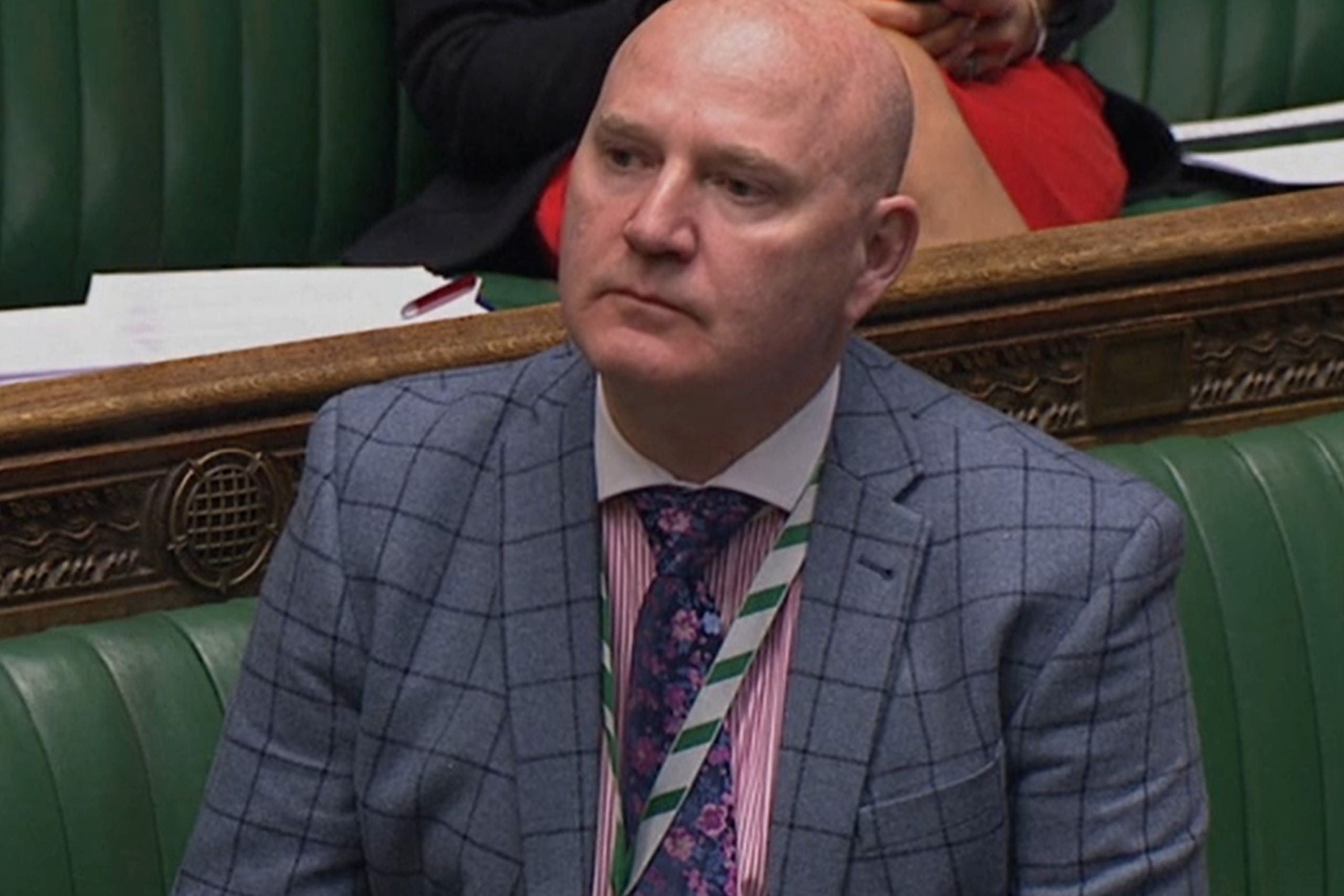MPs reject bid to give Scottish Parliament power to hold votes on independence
MPs voted 228 to 48 against a motion seeking to introduce a proposed law to the Commons for further debate.

Your support helps us to tell the story
From reproductive rights to climate change to Big Tech, The Independent is on the ground when the story is developing. Whether it's investigating the financials of Elon Musk's pro-Trump PAC or producing our latest documentary, 'The A Word', which shines a light on the American women fighting for reproductive rights, we know how important it is to parse out the facts from the messaging.
At such a critical moment in US history, we need reporters on the ground. Your donation allows us to keep sending journalists to speak to both sides of the story.
The Independent is trusted by Americans across the entire political spectrum. And unlike many other quality news outlets, we choose not to lock Americans out of our reporting and analysis with paywalls. We believe quality journalism should be available to everyone, paid for by those who can afford it.
Your support makes all the difference.A proposed law seeking to give the Scottish Parliament the power to hold independence referendums has been rejected by MPs.
The Alba Party’s Neale Hanvey (Kirkcaldy and Cowdenbeath) was seeking to introduce the Scotland (Self-Determination) Bill to the House of Commons for further consideration.
His proposal sought to amend the Scotland Act 1998 to transfer the power to legislate for a Scottish independence referendum from Westminster to Holyrood.
It added such a power could only be used where the Scottish public has demonstrated its support for holding a referendum and there must be at least seven years between such votes.
The effect of this Bill should be uncontroversial for every member, it merely establishes in law an equivalent mechanism to the principle already conceded by the UK Government in relation to a border poll in Northern Ireland
But MPs voted 228 to 48, majority 180, against Mr Hanvey’s motion, meaning his proposal cannot be considered further in the House of Commons.
Outlining his case, Mr Hanvey told the Commons: “In recent years, the UK state has steadfastly refused to acknowledge or honour the principle or democratic wishes of the Scottish electorate.”
He added: “The effect of this Bill should be uncontroversial for every member, it merely establishes in law an equivalent mechanism to the principle already conceded by the UK Government in relation to a border poll in Northern Ireland.
“Firstly, that the power to legislate for a referendum requires a democratic mandate from the Scottish public to do so.
“Since 2014, that criteria has been met in successive general elections to the Scottish Parliament, most recently in 2021 where a majority of MSPs were elected and a majority of votes were cast in favour of a manifesto commitment to deliver an independence referendum.
“Secondly, this Bill states that no such referendum may be held any sooner than every seven years after any previous such referendum.
“Should members of this chamber deny Scotland her legitimate claim on self-determination, then it will put beyond doubt that the voice of the people of Scotland is not welcome in this place and a new approach must be considered.
“This Bill offers both remedy and route. It places the power to decide firmly where it belongs – in the hands of the people of Scotland – and it does so by transferring the power to hold a referendum on independence to the Scottish Parliament.”
Liberal Democrat MP Christine Jardine (Edinburgh West) argued against the motion, saying: “My overwhelming emotion, my overwhelming sentiment on hearing of this debate was, ‘Oh, not again’.
“Surely this has been settled not just by the Supreme Court ruling but the repeated occasions on which the people of Scotland, myself included, other MPs here, the electorates of several constituencies and the majority of people at the last general election and in the (2014) referendum, made it clear that no, we cannot be held in the Union against our will – but our will is to stay.
“So here we are on the anniversary of the parliamentary approval of the Act of Union in 1707 going over the same nationalist argument again and again.
“The argument, which has been rejected in a referendum and rejected at the general election.”
The division list showed 38 SNP MPs and Conservative Philip Hollobone (Kettering) were among the MPs to support Mr Hanvey’s motion.
But 57 Tory MPs, 147 Labour and 13 Lib Dems were among those to oppose it.